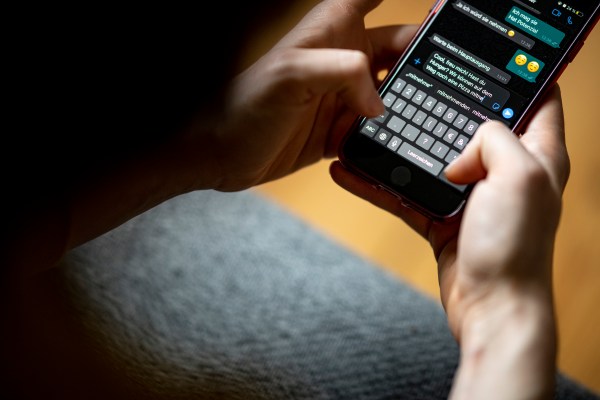Last week, the European Union named the six big tech companies that should be considered as gatekeepers in one way or another under the Digital Markets Act (DMA). And just a few days later, as WABetaInfo first reported, a new beta version of WhatsApp features a new screen called “third-party chats” — this represents the first example of the new EU regulatory framework.
This new screen appears in a development version of the Android app for the popular messaging service. It’s a new section that is separate from your default WhatsApp inbox. Right now, there’s nothing to see, but the idea is that WhatsApp will let you open a dedicated menu to see incoming messages from people who are using other messaging apps.
When the EU named the six gatekeepers — Alphabet, Amazon, Apple, ByteDance, Meta and Microsoft — it broke down the list in different categories with core platform services in each category. That’s why some companies appear in several lists.
For instance, Google operates several services that could be considered as gatekeeping services, including multiple “intermediation” services (Google Maps, Google Play, Google Shopping), but also the company’s ads delivery system, a web browser (Chrome), an operating system (Android), a search engine and a video sharing platform (YouTube).
Meta appears in several categories as well. The company operates two dominant social networks (Facebook and Instagram), an intermediation service (Meta Marketplace) and an advertising platform. In addition to those services, in one category in particular, Meta is the clear leader — and that’s messaging apps.
The EU is using the acronym N-IICS for messaging apps for Number-Independent Interpersonal Communication Service. It’s regulatory jargon to say that we are talking about messaging, but not text messages. The two messaging apps that fall in scope of the DMA are WhatsApp and Messenger.
In 2022, the EU said that interoperability for messaging platforms was a key requirement for messaging services from gatekeepers. In other words, people who use Signal, Telegram or Snapchat will be able to send messages to WhatsApp and Messenger users without having to create a WhatsApp or Messenger account.
Hence today’s new Android beta of WhatsApp. The WhatsApp development team has started work on interoperability as Meta doesn’t have much time to add support for third-party messengers. Gatekeepers have six months to comply with the full set of obligations, meaning that interoperability should be live in March 2024.
You may wonder why Apple’s messaging protocol iMessage isn’t part of the core messaging services. Apple says that its messaging service doesn’t meet the 45 million+ user threshold — at least, not yet.
It’s going to be interesting to see how Meta chooses to implement interoperability in WhatsApp when it comes to advanced features, such as file sharing, video calls and audio messages. End-to-end encryption will have to work with third-party services too. In other words, this is just the groundbreaking ceremony of a technically important project for the WhatsApp team.
